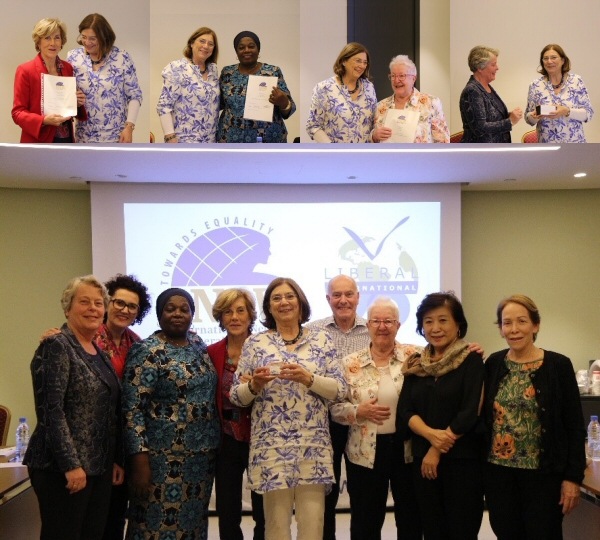Administrator
Friday 15th of March 2019
4.30 pm- 6pm at
Church Centre 8th floor
Event Overview: Transforming Social Protection: Can the Istanbul Convention Help? The Council of Europe’s Convention on Preventing and Combating Violence against Women and Domestic Violence, also known as the Istanbul Convention, is the most comprehensive international legislation on the issue of violence against women. The event will therefore explore the relevance of the Convention as a global framework to support social protection systems at the national level. Key experts from the Council of Europe, the International Network of Liberal Women and the National Democratic Institute will be invited to present their views and discuss best practices from across states which have already ratified the Convention.
Social protection systems have the potential to transform social and economic gender dynamics. However, to achieve this end, they must be designed taking into account the different types of risks and vulnerabilities affecting women in particular, such as violence or social marginalization. As the most comprehensive international treaty on the issue of violence against women, the Istanbul Convention can serve as an effective tool to help nation states to develop policies and mechanisms to overcome this challenge. One of the concrete outcomes of the event will be to generate international support for the extension of the Istanbul Convention beyond the borders of Europe, building an important advocacy platform towards the empowerment of women and girls around the world.
Participators of the Side Event
Moderator: Jayanthi Devi Balaguru Parti Gerakan Rakyat, Malaysia Jayanthi Devi Balaguru is currently serving as President of International Network of Liberal Women (INLW), the Chair of the Council of Asian Liberal and Democrats (CALD) Women’s Caucus. She is a lawyer, and an active member of Parti Gerakan Rakyat in Malaysia. Previously, she has served as an elected member of the Central Committee Member of the party, Wanita Gerakan Chairman and Chairman of the Central Environment Bureau. Ms. Balaguru has degrees from the University of Staffordshire and the University of Malaya and regularly conducts programs on women’s empowerment.
SPEAKERS:
Dubravka Šimonovic, Croatia UN Special Rapporteur on violence against women, its causes and consequences Appointed as United Nations Special Rapporteur in June 2015 by the UN Human Rights Council. Started her tenure on 1 August 2015. Was a member of the CEDAW Committee between 2002 and 2014 and served as its Chairperson in 2007 and 2008. She was the Chairperson of the UN Commission on the Status of Women between 2001 and
2002 and also worked as a member of the UNIFEM Consultative Committee. At the regional level she was the Chair and Vice Chair of the Council of Europe’s Task Force to combat violence against women, including domestic violence in 2006 and 2007. Between 2008 and 2010, she co-chaired the Ad hoc Committee (CAHVIO) that elaborated the Convention on Preventing and Combating Violence against Women and Domestic Violence. Ms. Šimonović holds a PhD in family law from the University of Zagreb. She is the author of several books and articles on women’s rights and violence against women.
Annemie Neyts-Uyttebroeck LI President of Honour, OpenVLD, Belgium Annemie Neyts-Uyttebroeck has had a long-standing career in European and international politics, serving as president of Liberal International between 2000-2005. Ms Neyts was three-times elected as a Member of the European Parliament and sat on the Committee on Foreign Affairs. In 2005 she was elected president of the European Liberal Democrat and Reform Party (now Alliance of Liberals and Democrats for Europe Party) and is today a Belgian Minster of State. The liberal contribution Annemie Neyts has made to international politics has been recognized in Belgium, with the awarding of the highest order of Belgium, the Order of Leopold, and internationally with her appointment as a Knight of the French Légion d’honneur.
Feride Acar, Turkey President of the Group of Experts on Action Against Violence Against Women and Domestic Violence (GREVIO) Professor Emeritus of Political Science and Public Administration at Middle East Technical University (METU) in Ankara, Turkey. She is a former Chairperson and member of the UN Committee on the Elimination of Discrimination Against Women (CEDAW). Prof. Acar has been active in the international women’s human rights and gender equality arena, either as an independent expert or representing Turkey in global and regional events. She has taken part in the negotiations, drafting and/or monitoring the implementation of several fundamental international instruments on women’s rights and gender equality (CEDAW, Beijing Platform for Action, CEDAW Optional Protocol, Istanbul Convention). She has organized and carried out ‘trainings’ on women’s rights and gender equality in many countries.
Bineta Diop, Senegal (NOT CONFIRMED) Africa Union Special Envoy on Women Founder and President of Femmes Africa Solidarité (FAS). She has led numerous peacebuilding programmes, including a women, peace and security initiative that resulted in the creation of a strong West African women’s movement, the Mano River Women’s Peace Network, which was awarded the United Nations General Assembly Prize in Human Rights in 2003. She has facilitated peace talks among women, particularly during the Burundi and the Democratic Republic of the Congo peace negotiations. Ms. Diop played an instrumental role in achieving gender parity within the African Union Commission in 2003, which culminated in the election of five female Commissioners, and the adoption of the African Charter on Women and Peoples’ Rights (Maputo Protocol) and the Solemn Declaration on Gender Equality in Africa. Ms. Diop has received numerous honours and awards and in 2011 was named by TIME magazine as one of the 100 Most Influential People in the World.
“Gov IDs My Number, So Track Me Maybe?”
4 W. 43rd St., The Blue Room
8:30 – 10:00 AM, March 11, 2019
Participants:
Noble Ackerson
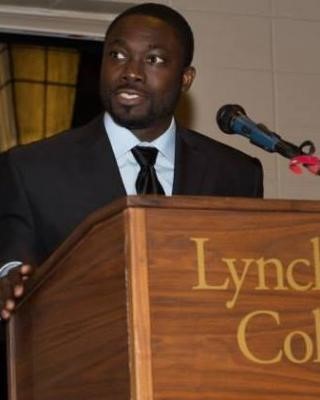 Senior Product Manager, Technology, NDI Noble is a Google Developers Expert for product strategy, international speaker on emerging tech, and a seasoned technical product lead delivering vision camera, web and mobile technologies from abstract concepts to final products. He led the award-winning DC-based Augmented Reality for fitness startup, LynxFit as Product Owner and Co-founder. Noble sits on the Alumni Leadership Board for the leading online educations startup Udacity. A member of the Alumni Board at his alma mater, Lynchburg College and acts as the Publicity Chair for Ubicomp and ISWC, two top-tier conferences for the internet of things and wearable technology.
Senior Product Manager, Technology, NDI Noble is a Google Developers Expert for product strategy, international speaker on emerging tech, and a seasoned technical product lead delivering vision camera, web and mobile technologies from abstract concepts to final products. He led the award-winning DC-based Augmented Reality for fitness startup, LynxFit as Product Owner and Co-founder. Noble sits on the Alumni Leadership Board for the leading online educations startup Udacity. A member of the Alumni Board at his alma mater, Lynchburg College and acts as the Publicity Chair for Ubicomp and ISWC, two top-tier conferences for the internet of things and wearable technology.
When Noble is not focused on product, he is mentoring underrepresented and aspiring founders, developers, speaking at technology events, or spending time with his daughters.
Thea Anderson
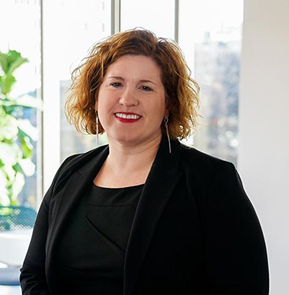 Director, Omidyar Network. Thea Anderson is a Director at Omidyar Network focused on digital identity and ethical technologies. Omidyar Network is a philanthropic investment firm that creates a more equitable economy, promotes responsible technology that improves lives, and harnesses the power of markets to catalyze economic and social change. Established in 2004 by eBay founder Pierre Omidyar and his wife Pam, Omidyar Network has invested more than $1.4 billion commercial companies and nonprofit organizations. For Omidyar Network, access to any ID is not sufficient, rather it must be Good ID, an identity that empowers and protects an individuals’ rights to privacy, security, and user-control in the digital world. Thea brings 18 years of experience to the firm as a development practitioner in inclusive economies, market development, and digital financial services with a focus on frontier and fragile markets. To learn more, visit www.omidyar.com, and follow on Twitter @omidyarnetwork #PositiveReturns
Director, Omidyar Network. Thea Anderson is a Director at Omidyar Network focused on digital identity and ethical technologies. Omidyar Network is a philanthropic investment firm that creates a more equitable economy, promotes responsible technology that improves lives, and harnesses the power of markets to catalyze economic and social change. Established in 2004 by eBay founder Pierre Omidyar and his wife Pam, Omidyar Network has invested more than $1.4 billion commercial companies and nonprofit organizations. For Omidyar Network, access to any ID is not sufficient, rather it must be Good ID, an identity that empowers and protects an individuals’ rights to privacy, security, and user-control in the digital world. Thea brings 18 years of experience to the firm as a development practitioner in inclusive economies, market development, and digital financial services with a focus on frontier and fragile markets. To learn more, visit www.omidyar.com, and follow on Twitter @omidyarnetwork #PositiveReturns
Hugo Novales
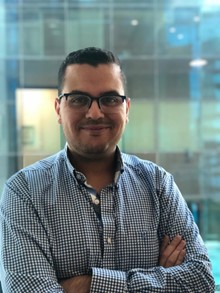 Regional Program Officer, NDI. Hugo Novales is a Guatemalan political scientist. He has conducted research on political parties and elections for NDI and the Asociación de Investigación y Estudios Sociales (ASIES). He teaches comparative politics and electoral systems at graduate and undergraduate level at two Guatemalan universities, and is currently a program officer at the NDI office in Guatemala, providing technical assistance to CSOs, political parties and public officials on matters related to political reform and elections.
Regional Program Officer, NDI. Hugo Novales is a Guatemalan political scientist. He has conducted research on political parties and elections for NDI and the Asociación de Investigación y Estudios Sociales (ASIES). He teaches comparative politics and electoral systems at graduate and undergraduate level at two Guatemalan universities, and is currently a program officer at the NDI office in Guatemala, providing technical assistance to CSOs, political parties and public officials on matters related to political reform and elections.
Lousewies Van Der Laan
She has just concluded a 3 year mandate as a Board Member of ICCAN: ICANN is a not-for-profit public-benefit corporation with participants from all over the world dedicated to keeping the Internet secure, stable and interoperable. It promotes competition and develops policy on the Internet’s unique identifiers. Through its coordination role of the Internet’s naming system, it does have an important impact on the expansion and evolution of the Internet. She is a former Member of the European Parliament where she served as vice-chairwoman of the Committee on Liberties and Civil Rights, Justice and Home Affairs between 2002 and 2003 and was a member on the Committee on the Rights of the Woman and Equal Chances between 1999 and 2003.
Sandra Pepera (Moderator)
Director for Gender, Women and Democracy, NDI
 INLW had the opportunity to fill in a Break Out Session on the important subject of Women and Climate Change. Hakima El Haité, Deputy President of Liberal International was one of the members in the discussion. The moderator Margaret de Vos van Steenwijk gave both speakers time to express their experiences on this vital theme.
INLW had the opportunity to fill in a Break Out Session on the important subject of Women and Climate Change. Hakima El Haité, Deputy President of Liberal International was one of the members in the discussion. The moderator Margaret de Vos van Steenwijk gave both speakers time to express their experiences on this vital theme.
Rama Toulaye Diallo Diouf from the Ministry of Environment of Senegal gave an insight in the way Senegal handles this combination. He confirmed that the gender issue should always be included when addressing Climate Change. Women are vital in the discussion and the solutions of this Climate Change problem. In Senegal one of the many problems is the large amount of salinated water. Local women have to solve the problem for the agriculture and the fisheries. A group of women has started under their own partnership their own farm. This can tackle the problems and is successful. In Senegal the” Plan d ’action 2019” is launched to better understand the gender in environment questions. Women can submit programs to the Ministry and most of these are taken up to be carried out. The main goal is to improve the living conditions of women, by helping them to grow vegetables and to farm in a more professionalized way. Also, they are becoming better business administrators and learn to market the products. After they have added value to the products, they can get higher prices for their products.
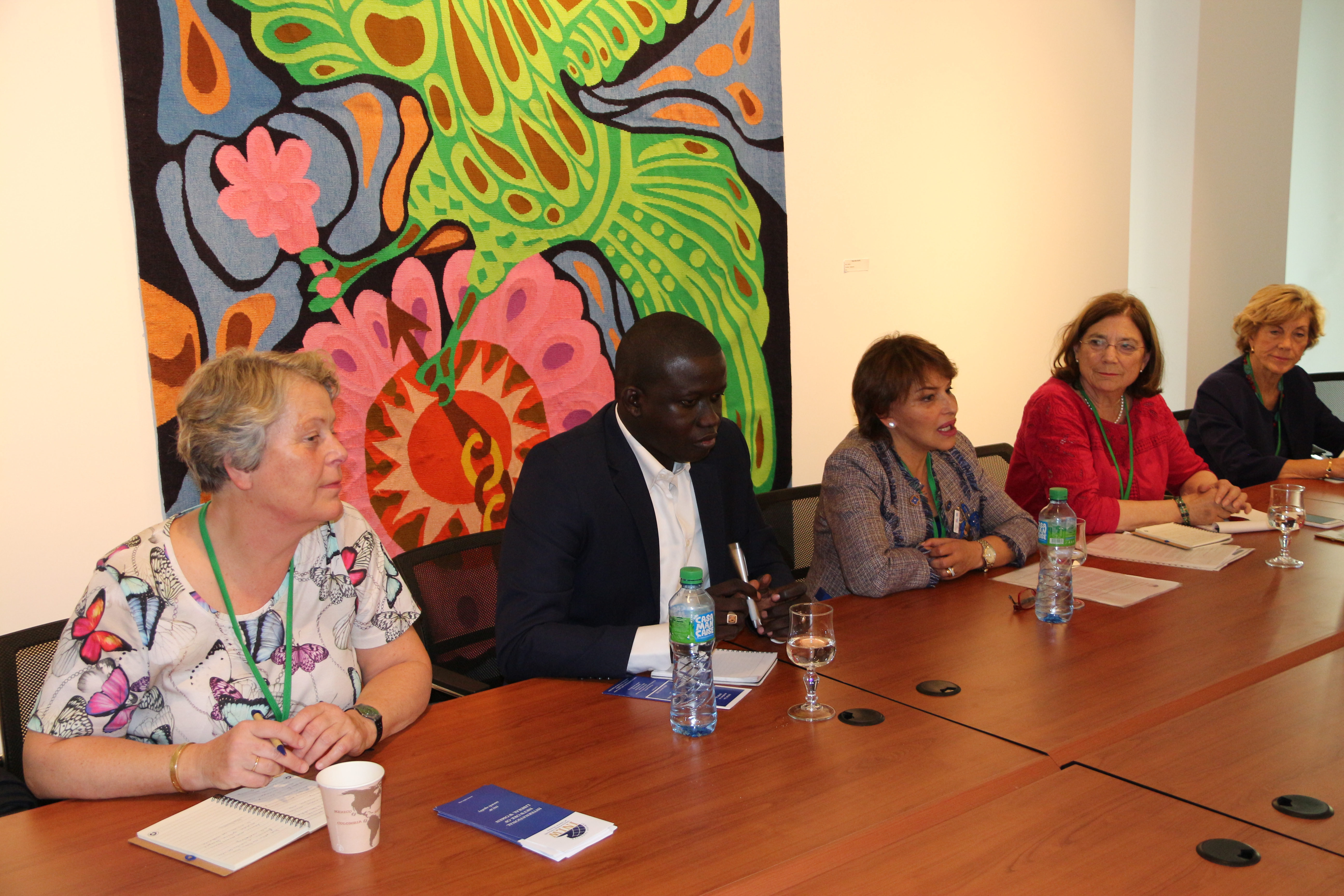 The government is also trying to make programs to involve more women in Parliament. Training programs are set up on many issues such as environment, entrepreneurship, agriculture, financial issues, administrative issues and marketing.
The government is also trying to make programs to involve more women in Parliament. Training programs are set up on many issues such as environment, entrepreneurship, agriculture, financial issues, administrative issues and marketing.
Women must gain their own independence and together with the Ministry they hope to improve the position of women. Hakima El Haité is glad to see that Senegal has acted after the COP 22 in Marrakech in 2017 by getting gender elements in all programs and politics. Unfortunately, although Hakima lobbied hard for gender in COP 22, there is no obligation to add gender in the country’s programs of countries which signed the agreement at COP 22. In Africa 90% of the women are having to deal with the problem of water for most of their time. The food insecurity is enormous while there is so much land, but 1,5 billion people have no access to water. Water is essential for food and for hygiene. Women are often responsible for the food security. By getting more women involved and giving them access to finance, capacity building, decision-making and negotiating positions the whole population will gain prosperity.
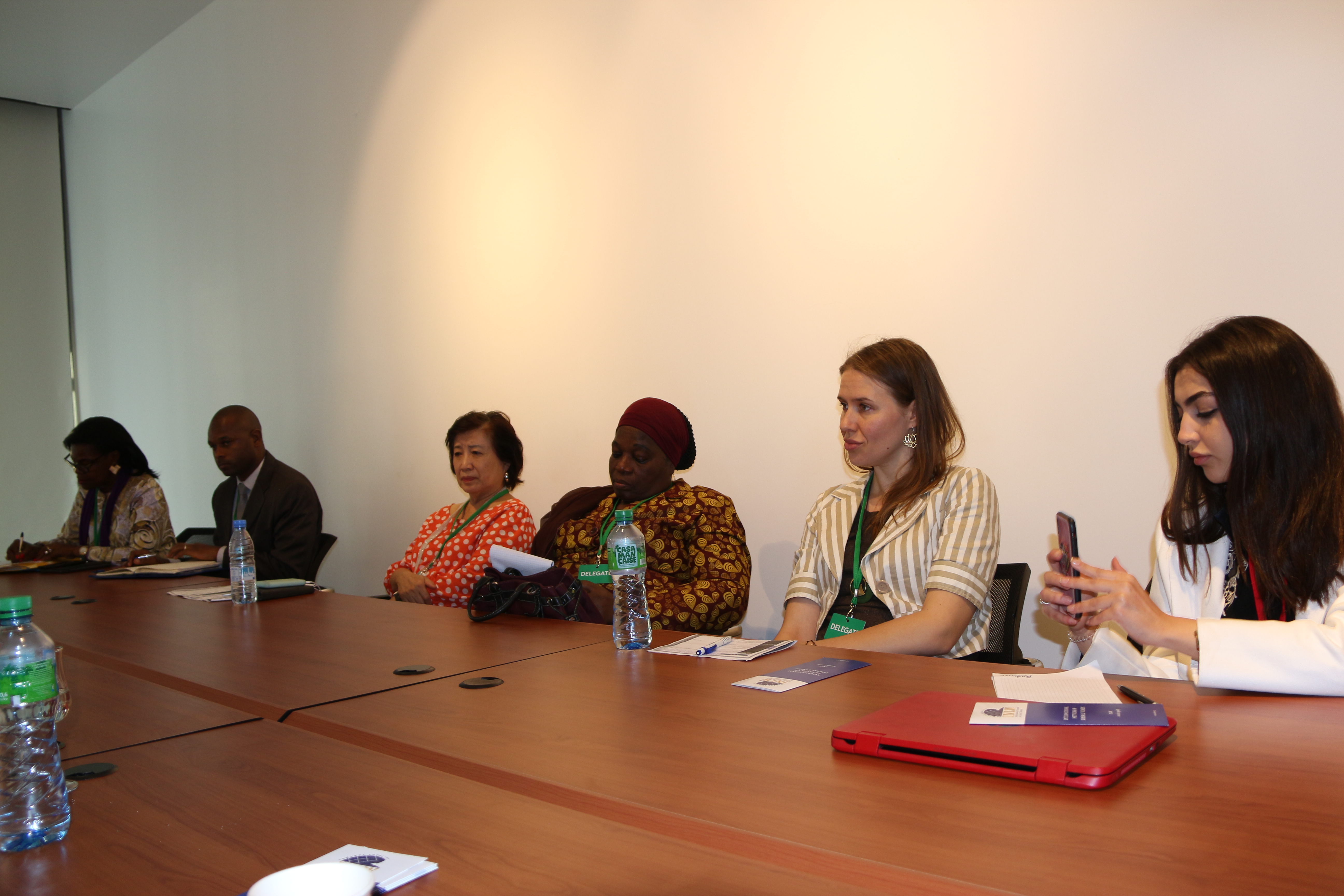 In Senegal women have no right to own land, while on the other hand they must take care of the children as well as providing for their food. They must get the opportunity to become entrepreneurs. It was typical that at the COP 22 agreement there were only men present!
In Senegal women have no right to own land, while on the other hand they must take care of the children as well as providing for their food. They must get the opportunity to become entrepreneurs. It was typical that at the COP 22 agreement there were only men present!
Both speakers spoke out their appreciation for the resolution of INLW on Women and Climate Change and hoped that LI and other parties will add their support to fight for an action plan with enough available money and gender issues high on the agenda in many different partner countries in Africa.
Hakima El Haité has set up a new program “For Women in Africa” with other partners to get money for new projects to help women as much as possible. It is important to help women to heighten the security of their families and to stop the migration as a result of terrorism. One of the important projects is lighting the roads. Enough light gives women more security and thus freedom to go anywhere on their own. Another project is that in Morocco solar panels help solving water problems. As the sun is always available in Africa, the sun can give many more solutions in Africa.
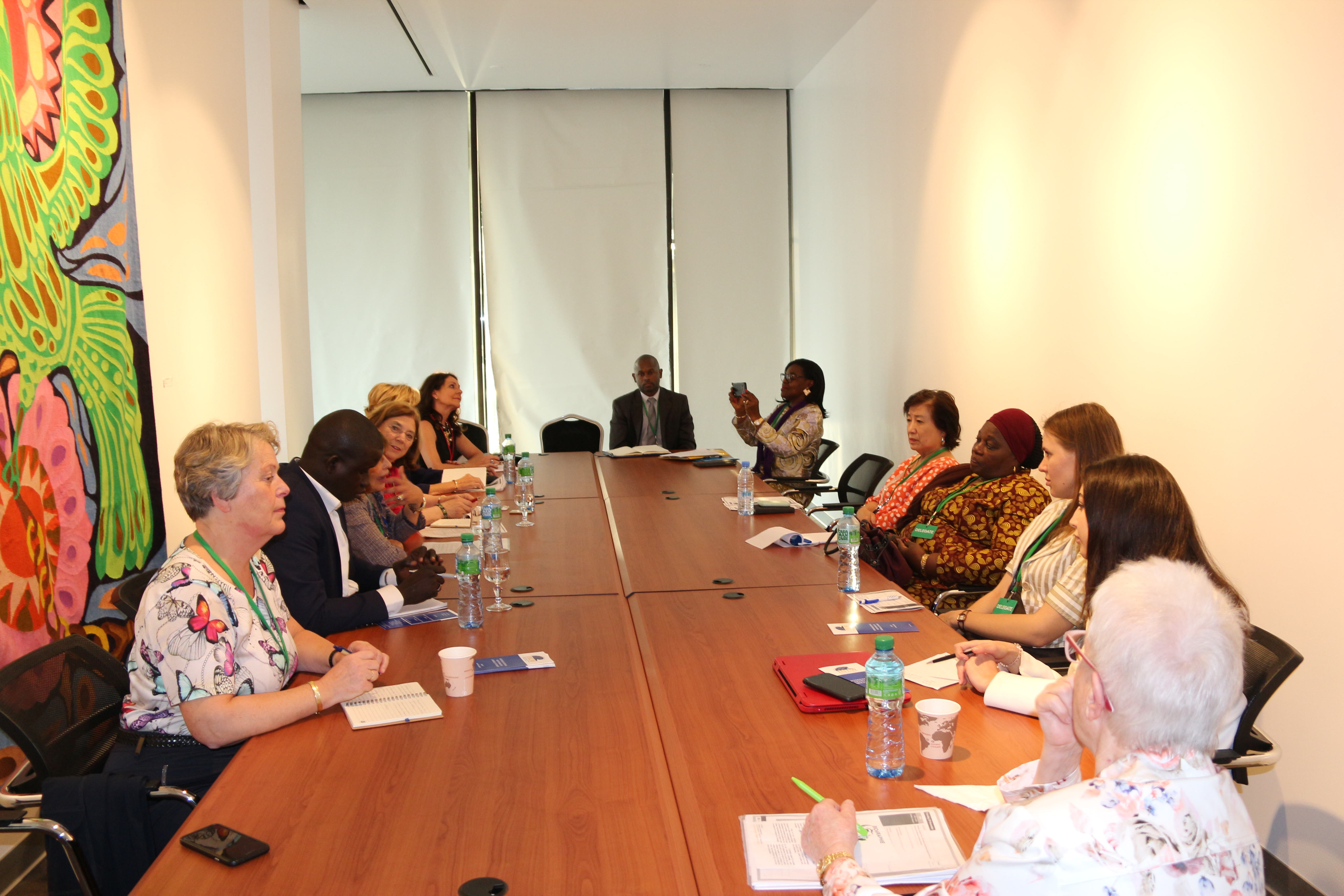 A very important project is education for girls and women. In many parts of Africa education is still not compulsory for girls. In the Cote d’Ivoire education is compulsory for all children from the age of 6. Still girls in the countryside must be stimulated to go to school, the distance is often far, and it is not very safe to travel.
A very important project is education for girls and women. In many parts of Africa education is still not compulsory for girls. In the Cote d’Ivoire education is compulsory for all children from the age of 6. Still girls in the countryside must be stimulated to go to school, the distance is often far, and it is not very safe to travel.
Both speakers are hopeful of the possibilities and new developments that are seen all over the world and are confident that Africa will become an important part of the world in the future. A lively discussion followed with examples given of the good, bad and hopeful developments in different parts of the world. The time was too short to go into more detail.
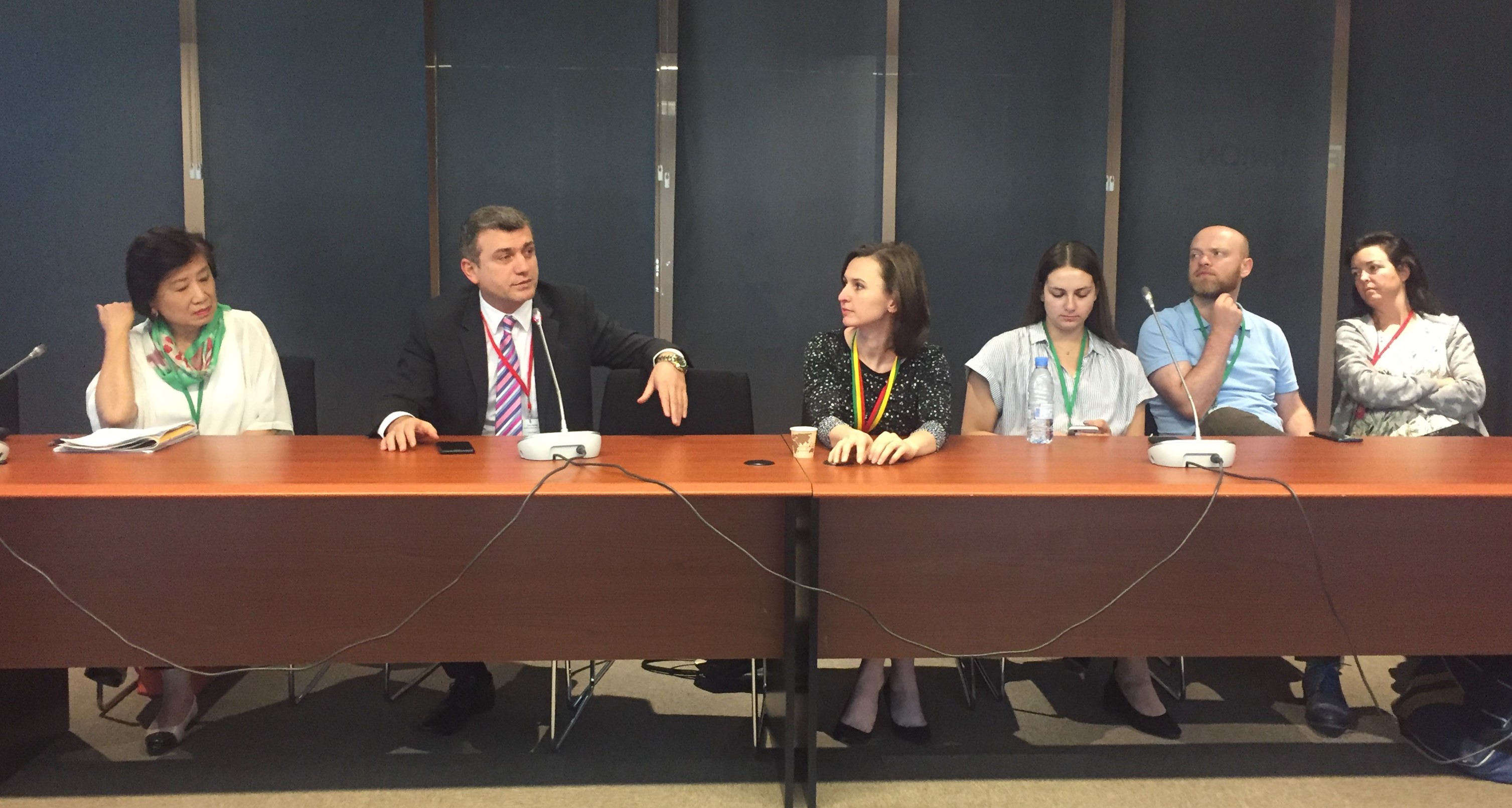 Dhouba Debaya from Tunisia gave us some important challenges for his country. First, the law must be changed in order to get a better position for women. One of the privileges that has recently been demolished is the law on polygamy. Through all the pressure of many women and political parties it is now abolished. A good operating political party can lead a country into a civil society.
Dhouba Debaya from Tunisia gave us some important challenges for his country. First, the law must be changed in order to get a better position for women. One of the privileges that has recently been demolished is the law on polygamy. Through all the pressure of many women and political parties it is now abolished. A good operating political party can lead a country into a civil society.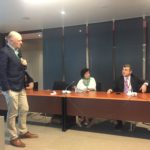
The moderator was Boris van der Ham, LI HRC member.
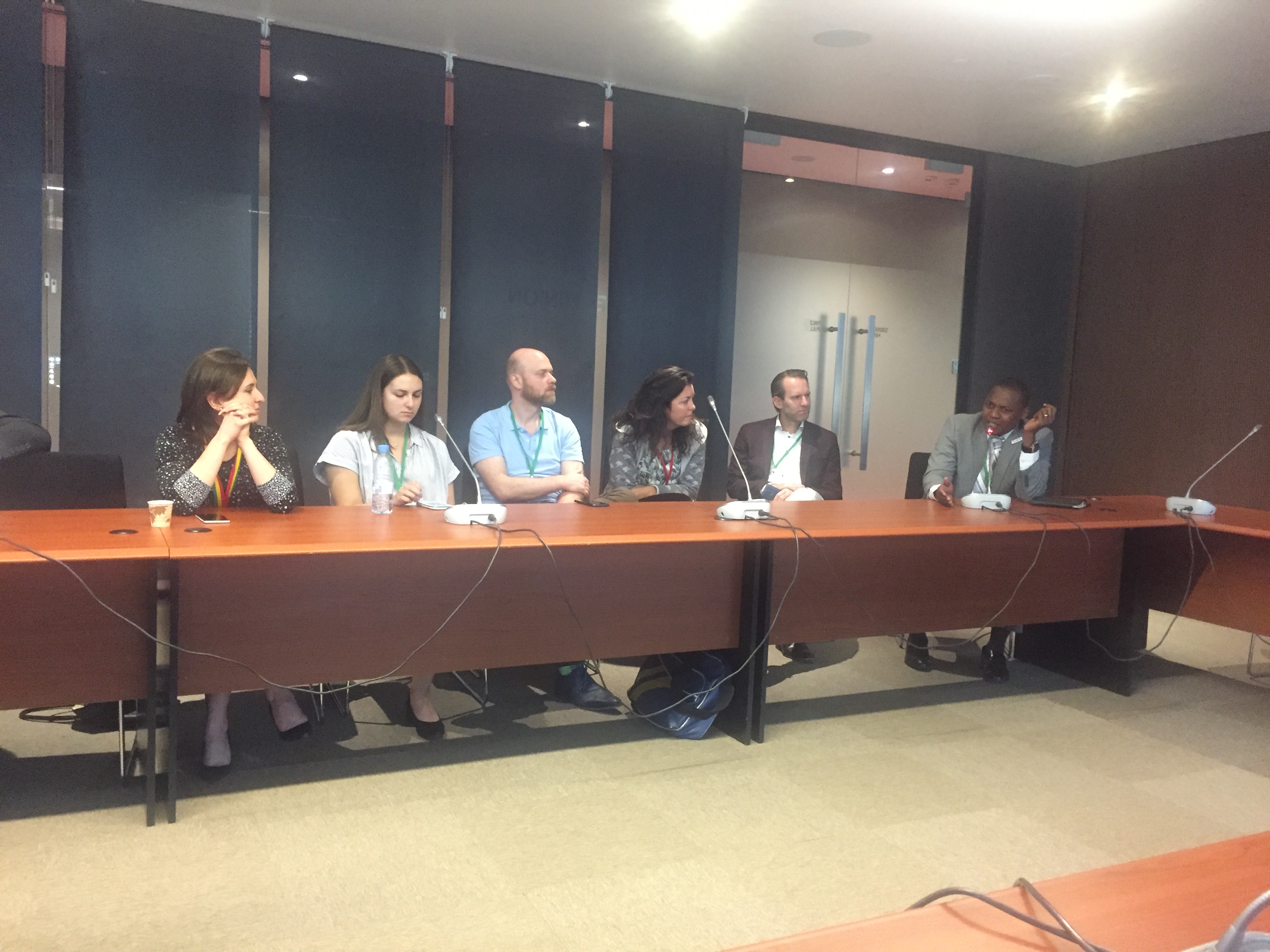 Educating more women and giving them positions in politics helps to improve this whole aspect. In many African countries more women than men are voting during elections, but often they don’t vote for other women but for men. This also needs education from other women and emphasis on the importance to support your own gender as much as you can if you want to see more women in important positions.
Educating more women and giving them positions in politics helps to improve this whole aspect. In many African countries more women than men are voting during elections, but often they don’t vote for other women but for men. This also needs education from other women and emphasis on the importance to support your own gender as much as you can if you want to see more women in important positions.Overall there is progress in the region but there is still a lot to be done. Very often the results are small but still any progress is better than none and is the conclusion of the discussion was that we can see that we are not losing ground.
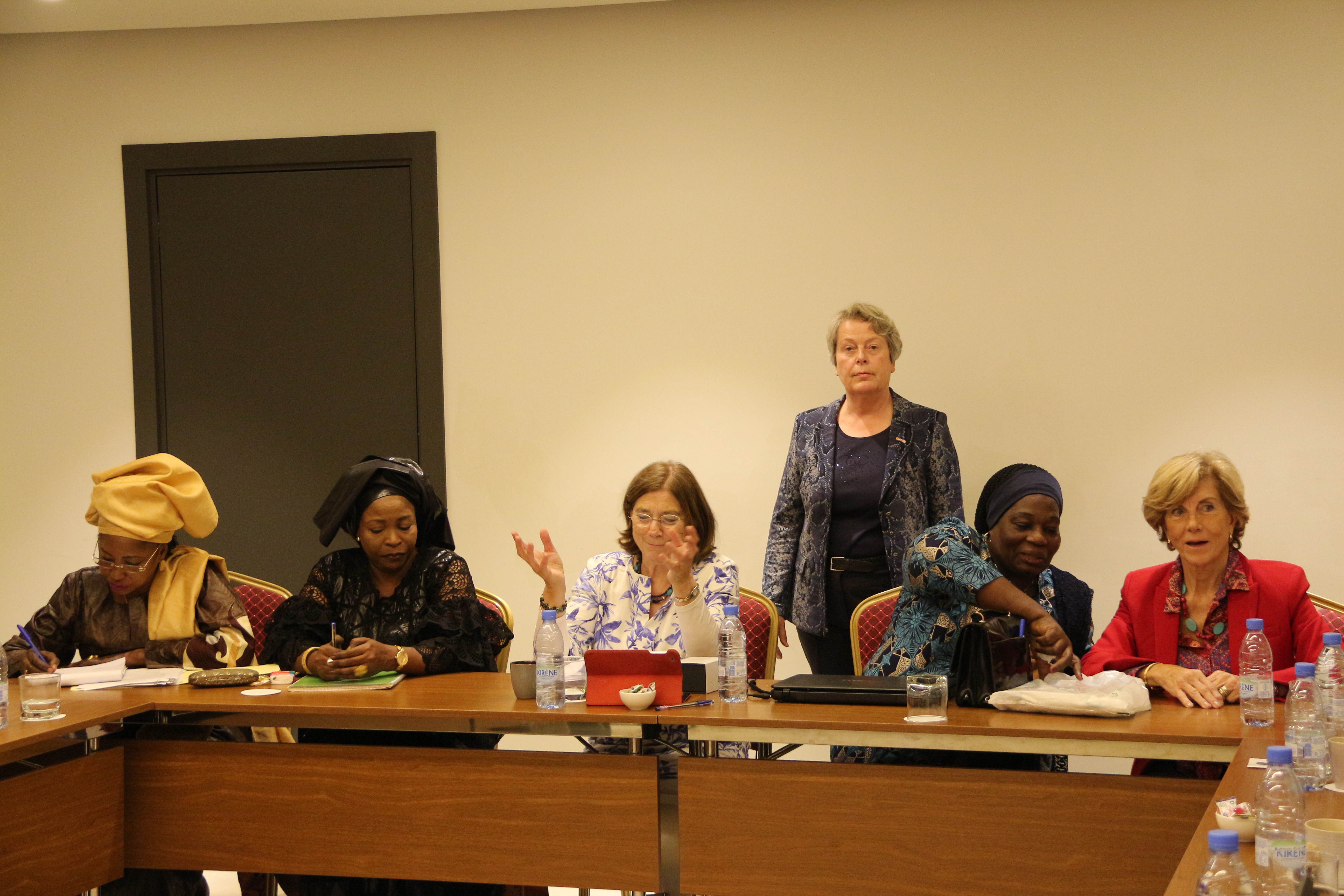 After our Board Meeting in Dakar, Senegal, we received 15 ladies from Senegal and Ivory Coast to give them information about INLW and how they can become a member and participate in our continuous effort to get more women in Politics and decision-making positions.
After our Board Meeting in Dakar, Senegal, we received 15 ladies from Senegal and Ivory Coast to give them information about INLW and how they can become a member and participate in our continuous effort to get more women in Politics and decision-making positions.
The platform that will be formed in this part of Africa will constitute of members from Senegal, Mali and Cote d’Ivoire. The Friedrich Neumann Stiftung will help organize events and be able to give training for women who are interested in a political career.
 In all these countries it is very difficult for women to get any important leading position. Unfortunately, we notice that women do not always support other women. That is seen in many countries. It is sad to say that women tend to have more criticism about their own sisters in good positions than about men.
In all these countries it is very difficult for women to get any important leading position. Unfortunately, we notice that women do not always support other women. That is seen in many countries. It is sad to say that women tend to have more criticism about their own sisters in good positions than about men.
This group of women are going to form a sort of INLW Chapter: “West African Liberal Women”.

In Senegal there are 50% women in Parliament but that is achieved by an agreement between the parties and the president. This is not the case in the Côte d’Ivoire or Mali.
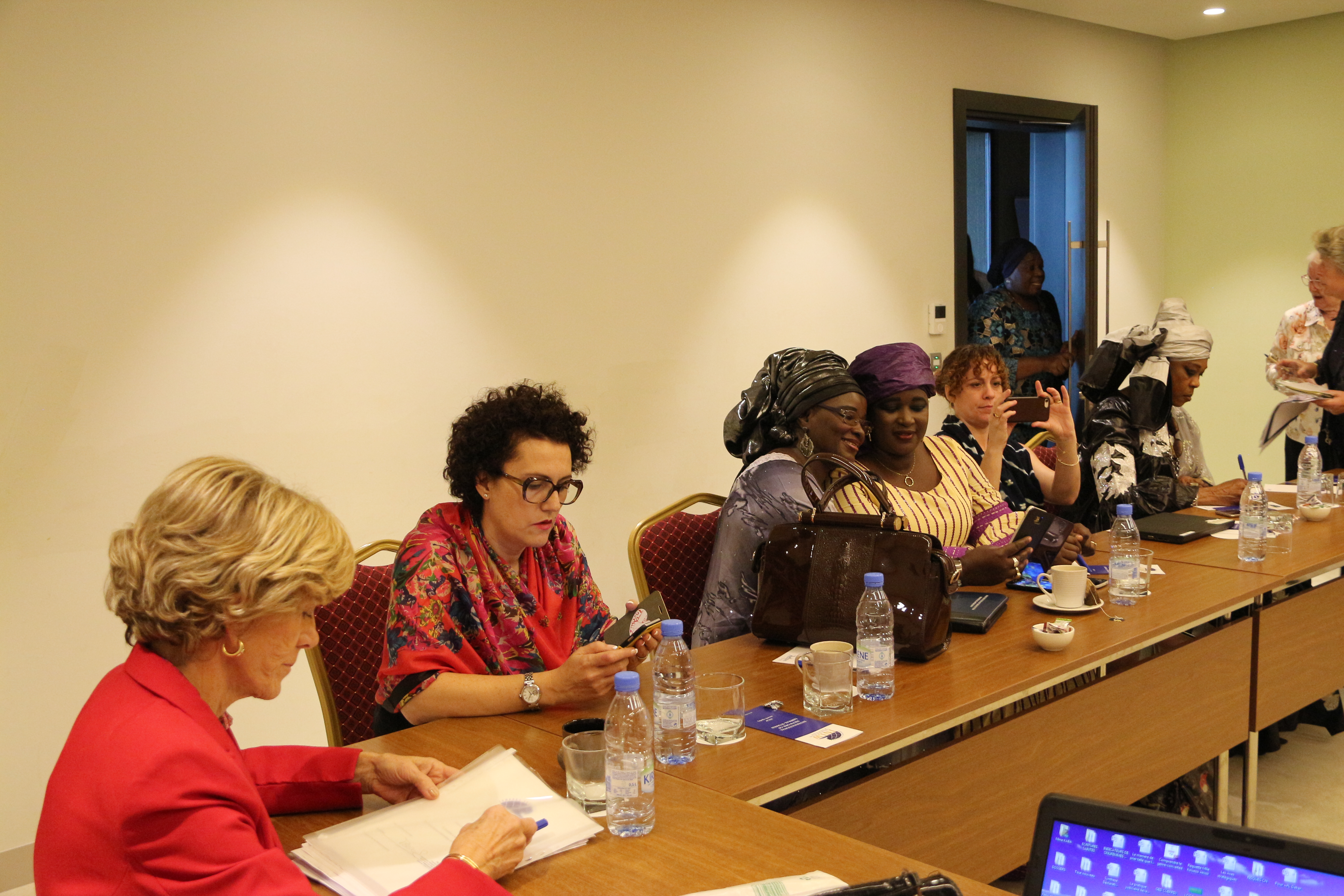 The meeting was an agreeable highlight for us at the congress and in the mean time 18 ladies have become members. The representative of this part of Africa, Awa Gueye Kebe, is actively acquiring new members and has agreed to become one of our vice-presidents in Africa in the INLW Board.
The meeting was an agreeable highlight for us at the congress and in the mean time 18 ladies have become members. The representative of this part of Africa, Awa Gueye Kebe, is actively acquiring new members and has agreed to become one of our vice-presidents in Africa in the INLW Board.
 In the evening many of our new friends were present during the African Dinner & Freedom speech.
In the evening many of our new friends were present during the African Dinner & Freedom speech.
We are looking forward to seeing some of the new members during the next CSW in March 2019 in New York.
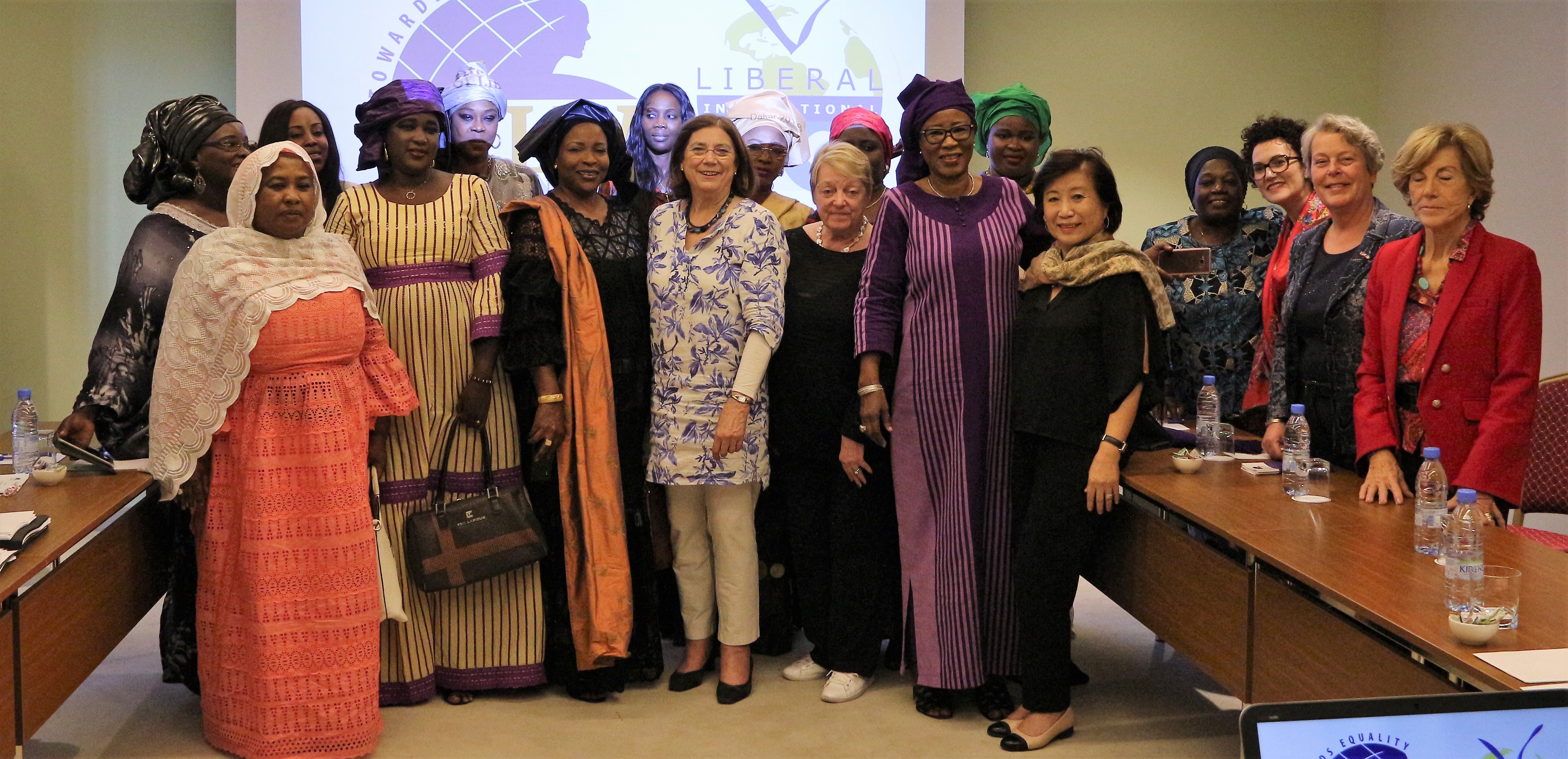 Download as pdf
Download as pdf
Members of INLW Netherlands Chapter participated in writing the so-called “NGO shadow report concerning the NL Government report to the CEDAW Committee.
INLW was a co-signer of the NGO Shadow report
This shadow report has been compiled on behalf of the Dutch CEDAW Network by a team consisting of some NGOs and independent women’s rights experts in the Netherlands. In mid-November 2018 the Dutch CEDAW Network learned through the website of CEDAW/OHCHR that the follow-up report had been submitted by the government of the Netherlands. As a response to that the Dutch CEDAW Network started a consultation process with NGOs and CSOs. On 27 November 2018 it convened a meeting to discuss the government’s follow-up report. Other experts from NGOs, CSOs and expert institutions such as Movisie – knowledge and approach of social issues also lent their expertise through written submissions.
Link to report
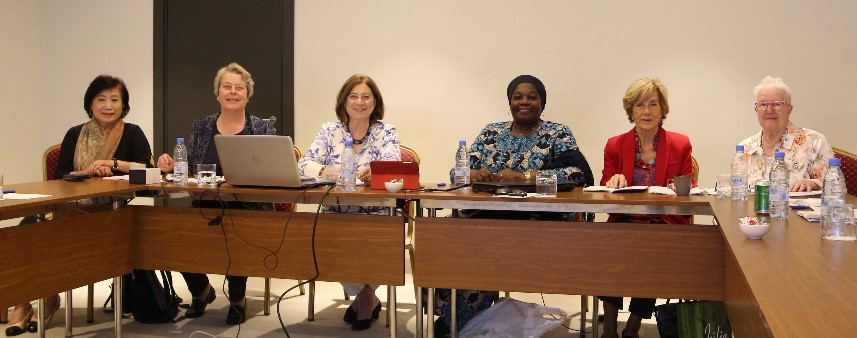
During the General Meeting in Dakar, Senegal, the election and appointment took place of several (new) members of the INLW Board. The Board has also decided to install a Consultative Committee, acoording to art. 4.5 of the INLW Constitution.
Several members were present during the GM. There was a warm welcome for the New President, Jayanthi Devi Balaguru who was unable to be present herself because of her work obligations. She hopes to meet members in New York during the CSW in March.
Words of thanks were especially spoken to Margaret de Vos van Steenwijk, president of INLW during two terms. She gave a lot of energy, time, wisdom, enthousiasm and friendship to all members during those years. We all thank her and hope for her support in her new position as immediate Past President.
Here you find the new formation of the Board and also the group of members who were appointed as members of the Consultative Committee.
INLW MANAGEMENT BOARD
APPOINTED IN THE GENERAL MEETING IN DAKAR 2018
| President: | Jayanthi Devi Balaguru |
| Immediate Past President: | Margaret de Vos van Steenwijk |
| Deputy President: | Khadija El Morabit |
| Secretary General: | Mireia Huerte Sala |
| Treasurer: | Lysbeth van Valkenburg |
| Vice-president Europe: | Sal Brinton |
| Vice President Asia: | Maysing Yang |
| Vice President Mena: | Loubna Amhair |
| Vice President Africa: | nominated Awa Gueye Kebe |
| Vice President Latin America: | Patricia Olamendi |
| Member general affairs: | Leticia Gutíerrez |
| Member general affairs: | Ruth Richardson |
CONSULTATIVE COMMITTEE of INLW
Installed in Dakar, Senegal during the General Meeting of
The Interantional Network of Liberal Women
according to art. 4.5 of the INLW Constitution
Joaquima Alemany Roca, Spain
Marianne Kallen, The Netherlands
Denise Robinson, South Africa
Silvia Flury, Spain
Yaya Fanta Kaba Fofana, Ivory Coast
This year the ALDE party met at Madrid for its congress. The European Liberal Democratic family consists of more than 60-member parties across the continent and more than 50 members of the European Parliament who are part of the ALDE Group. Hans van Baalen MEP (Member of the VVD) has been president of the ALDE Party since 2015.
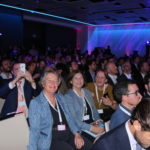 The congress was set in the setting of the 2019 elections. It will be an important year for all Liberals with the coming elections.
The congress was set in the setting of the 2019 elections. It will be an important year for all Liberals with the coming elections.
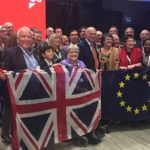 Another important theme is the Brexit. This will overshadow the planned debate about budget, migrations and what is the future of Europe. Europe still favors a soft Brexit and any realistic idea from the UK is welcome. The Liberal Democrats are very clear, that they want to stay in Europe, but they are not strong enough to be able to change Brexit to Stay.
Another important theme is the Brexit. This will overshadow the planned debate about budget, migrations and what is the future of Europe. Europe still favors a soft Brexit and any realistic idea from the UK is welcome. The Liberal Democrats are very clear, that they want to stay in Europe, but they are not strong enough to be able to change Brexit to Stay.
It is important for liberals to work together for the future of a stronger and united Europe. We must keep reminding people of what we have achieved together. But we must also listen to what the people of Europe want. Now we can see two visions of Europe: the vision of populists and nationalists and the vision of those who want to relaunch the European dream. It is important to build bridges even if we don’t agree on everything.
[read]
The discussion should be focused on the future of trade, investments and innovation. Most liberals are optimistic and hopeful that the liberals can win.
Juli Minoves said: “We need to fight beyond Europe. The Liberal struggle will be strong if it goes beyond any border”. We must show people the proven costs of anti -Eu policy.
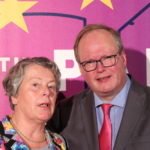 “Let 2019 be remembered as the year when the EU regained its confidence and began moving forward again”, quote from Micheál Martin (Ireland) as also the following, “Brexit is one of the most destructive decisions taken by a free nation in decades. I want to thank all ALDE member parties for all their support in helping Ireland to diminish the impact of Brexit”.
“Let 2019 be remembered as the year when the EU regained its confidence and began moving forward again”, quote from Micheál Martin (Ireland) as also the following, “Brexit is one of the most destructive decisions taken by a free nation in decades. I want to thank all ALDE member parties for all their support in helping Ireland to diminish the impact of Brexit”.
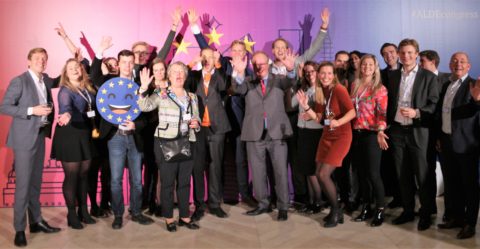 A considerable amount of time was spent on the presentation of the “ALDE Manifesto: The Liberal vision for the future of Europe”. There was a good and healthy debate on the many suggested amendments to the Manifesto. After voting on the sometimes-reedited amendments the ALDE Manifesto was adopted. The parties can use this important document for their campaigns for the European elections in May 2019.
A considerable amount of time was spent on the presentation of the “ALDE Manifesto: The Liberal vision for the future of Europe”. There was a good and healthy debate on the many suggested amendments to the Manifesto. After voting on the sometimes-reedited amendments the ALDE Manifesto was adopted. The parties can use this important document for their campaigns for the European elections in May 2019.
Another issue at the congress was sustainable growth. One of the conclusions was that cities around the world need to take real action to achieve sustainable growth. Some statements were given by participants: We should eat less but better meat, as large-scale industrial production hurts the environment, but small scale can enhance biodiversity.
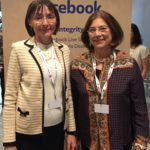 Let’s save our blue oceans! Every second breath we take comes from the ocean, we need it to survive, strong message from MEP Meissner, The Liberals must lead the way to a more sustainable, innovative and safe world, MEP Federley (Sweden).
Let’s save our blue oceans! Every second breath we take comes from the ocean, we need it to survive, strong message from MEP Meissner, The Liberals must lead the way to a more sustainable, innovative and safe world, MEP Federley (Sweden).
Apart from many interesting sessions we were taken to the Museo del Prado for a lovely Congress dinner reception. Several new members were elected for the Alde Board.
We also made some new contacts and hope to see many ALDE members again. We wish all the MEP’s a successful campaign in 2019!
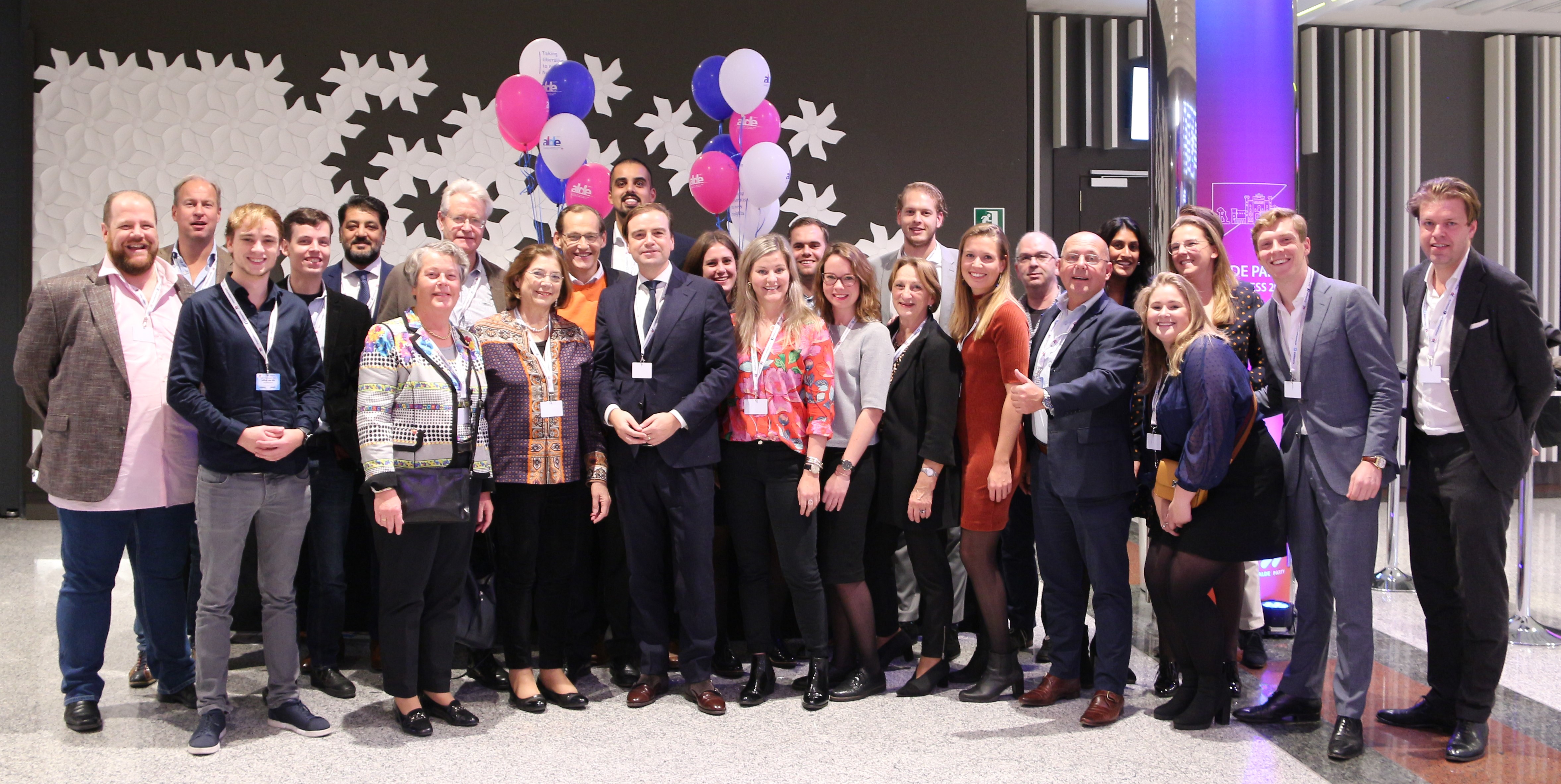
[/read]
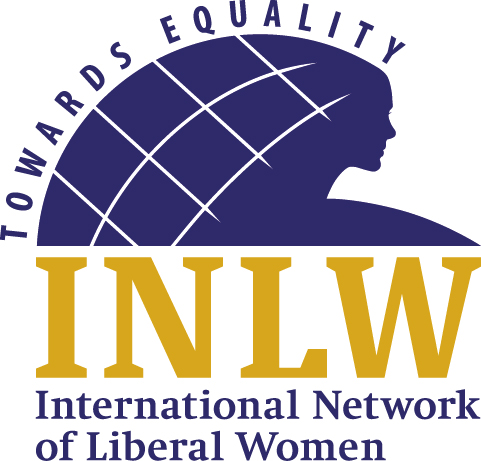
 Visit our Facebook page
Visit our Facebook page